Autism-friendly martial arts programs offer structured environments that build focus, confidence, and social skills. Look for dojos with sensory accommodations, specially trained instructors, and adapted belt systems that celebrate individual progress. Key features include quiet spaces, reduced sensory stimulation, and personalized instruction methods. Programs like All-Star Martial Arts’ Samurai Program specifically cater to developmental differences. The right martial arts environment can transform your child’s development while providing a supportive community for your family.
5 Best Autism-Friendly Martial Arts Programs Near You
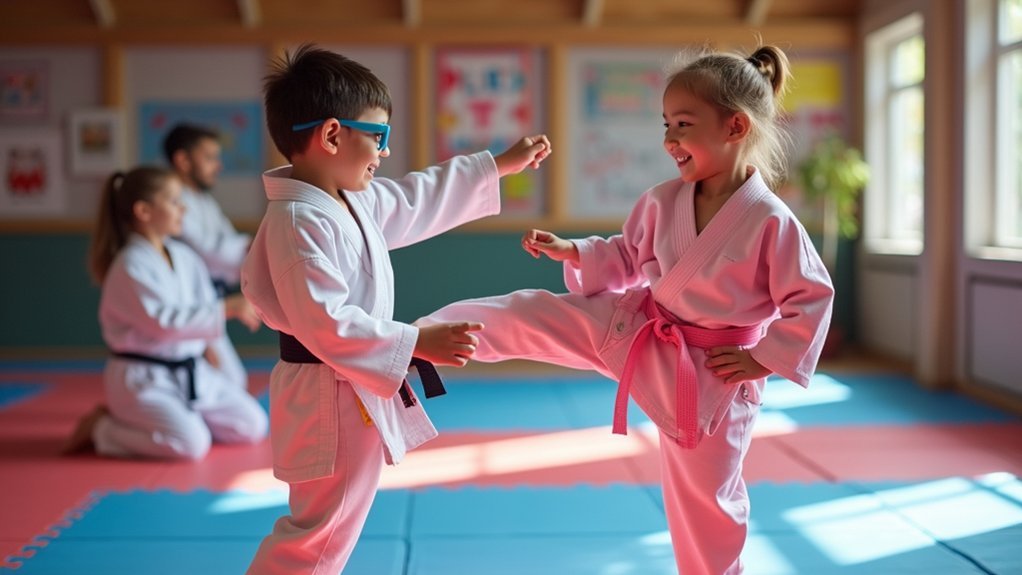
Where can you find specialized martial arts training that supports individuals with autism? All-Star Martial Arts in Cypress, Texas offers an exceptional option through their Samurai Program. This program is specifically designed for individuals with developmental delays, creating a supportive environment for learning martial arts.
Their Martial Arts classes focus on building self-discipline, respect, and personal growth with instruction tailored to meet the unique needs of students with autism. These classes enhance motor skills, balance, and social interaction while promoting physical activity in a positive atmosphere.
The school welcomes community involvement and offers risk-free trial classes with no commitment required. This gives your family a chance to experience the benefits of their autism-friendly martial arts program firsthand.
Understanding the Benefits of Martial Arts for Individuals With Autism
While many therapeutic approaches exist for individuals with autism, martial arts stands out as a particularly effective option that combines physical, mental, and social development.
Martial arts offers a uniquely holistic therapy for autism, integrating physical discipline with mental focus and social growth.
When your child with special needs participates in martial arts training, they’ll likely experience significant improvements in focus and self-control, helping them manage impulsive behaviors and extend attention spans.
The structured, predictable environment of martial arts classes provides the consistency many individuals with autism crave.
You’ll notice how these programs incorporate social skills training, offering valuable opportunities to develop communication and teamwork abilities in a supportive setting.
As your child achieves personal goals like mastering techniques or advancing in belt ranks, they’ll build self-esteem and confidence while enjoying physical activity that promotes overall fitness and well-being.
Key Features of Autism-Friendly Martial Arts Environments
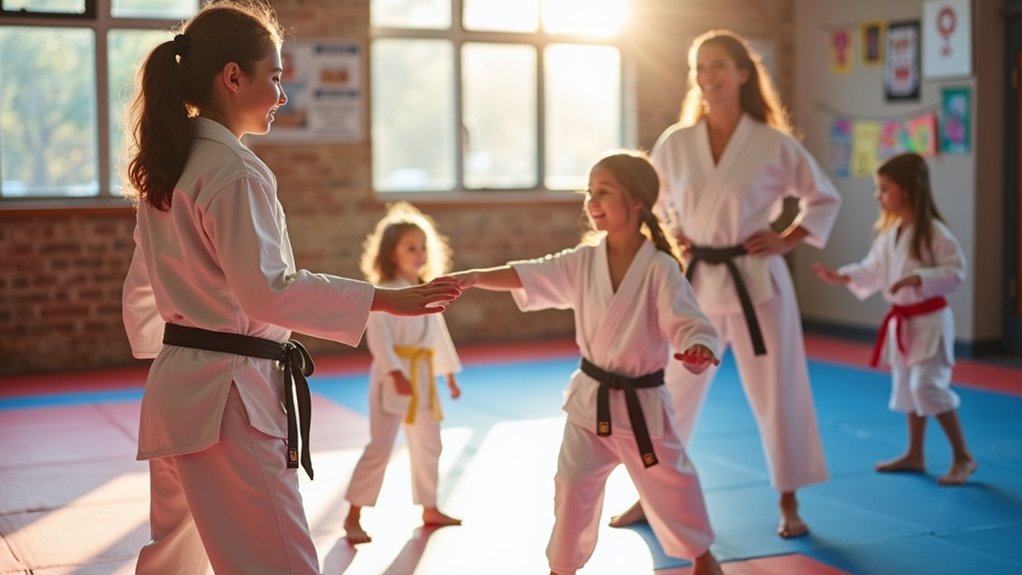
When seeking an autism-friendly martial arts program, you’ll find that sensory-smart dojo designs incorporate reduced noise levels, soft lighting, and visual supports to create a comfortable learning space.
These specialized environments often feature designated quiet areas where students can decompress if they feel overwhelmed during training.
Individualized instruction approaches further enhance the experience, with trained instructors who adjust teaching methods to match each student’s unique communication style, sensory needs, and learning pace.
Sensory-Smart Dojo Designs
Creating an environment that supports individuals with autism requires thoughtful design considerations throughout the martial arts space. Sensory-smart dojo designs prioritize reduced lighting and sound levels, establishing a calming atmosphere for participants with sensory sensitivities.
You’ll find many autism-friendly dojos equipped with sensory tools like weighted lap pads and noise-canceling headphones to help students manage potential overstimulation during practice. These thoughtful adaptations create comfortable learning environments where participants can focus on developing martial arts skills without sensory distractions.
The best programs feature clearly organized spaces with visual supports and consistent routines, making expectations and changes easier to understand.
Many facilities also incorporate flexible participation areas, allowing your child to take movement breaks while remaining engaged in the class structure.
Individualized Instruction Approaches
Three core elements define effective individualized instruction in autism-friendly martial arts programs: personalized attention, specialized training, and adaptive teaching methods.
When you enroll your child, you’ll notice these programs maintain lower instructor-to-student ratios, ensuring each participant receives tailored guidance.
Instructors employing individualized instruction approaches typically:
- Break complex movements into manageable steps, allowing students to master techniques at their own pace.
- Utilize visual aids and structured routines to enhance comprehension and maintain focus.
- Apply personalized communication strategies that resonate with each student’s learning style.
- Adapt teaching methods in real-time based on student responses and engagement levels.
These customized approaches help your child build skills progressively while experiencing consistent success, fostering both confidence and competence in their martial arts journey.
How to Choose the Right Martial Arts Program for Your Child
Finding the perfect martial arts program for your child with autism requires careful consideration of several key factors. In the Greater Houston area, including Sugar Land, specialized programs like All-Star Martial’s Samurai Program are tailored for children with Autism Spectrum Disorder and physical disabilities.
Look for classes with small instructor-to-student ratios to guarantee your child receives personalized attention. Experienced instructors who understand how martial arts teaches social skills and healthy habits are essential.
Make certain the program focuses on developing fine motor skills and offers a supportive environment where children are encouraged to participate at their own pace.
Don’t hesitate to try before committing—quality programs never sell you on long-term contracts without offering trial classes first.
Prioritize curricula that emphasize life skills development alongside physical techniques.
The Role of Sensory Accommodations in Martial Arts Training
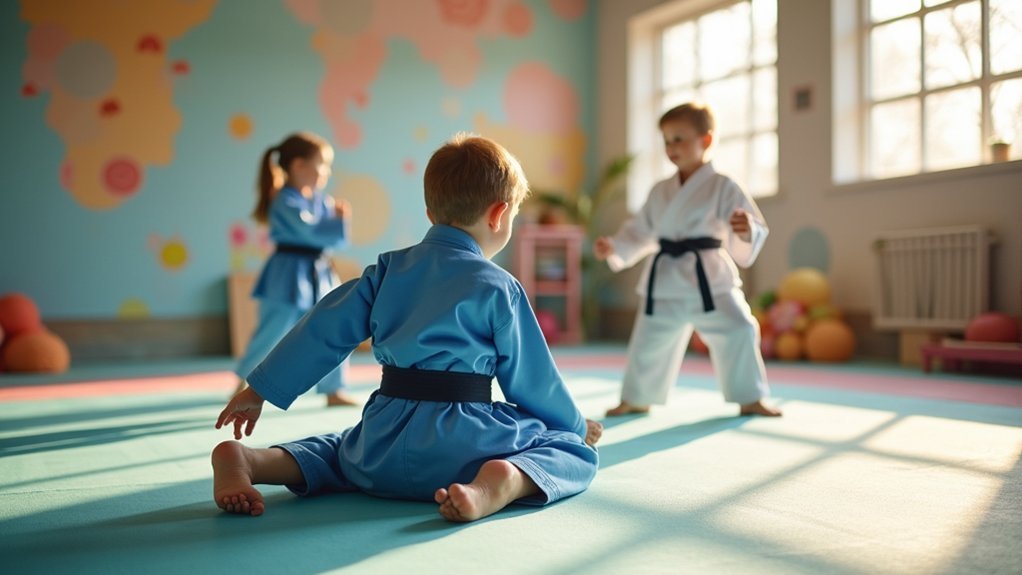
You’ll find that sensory-friendly dojos offer modified environments with adjusted lighting and reduced noise levels to help your child stay focused and comfortable during training.
Adaptive equipment like weighted lap pads and ear defenders can transform the martial arts experience for students with autism by addressing individual sensory needs.
Instructors trained in sensory accommodation techniques make all the difference, as they’re equipped to recognize triggers and modify teaching approaches to guarantee every student can participate fully.
Sensory Modifications in Dojos
While traditional martial arts training often involves bright lighting and loud commands, autism-friendly dojos have transformed these environments to accommodate sensory sensitivities without compromising training quality.
You’ll find thoughtful modifications that create a more accessible martial arts experience.
Many dojos now offer:
- Dimmed lighting and reduced noise levels, creating a calmer atmosphere where you can focus on technique rather than managing sensory overload.
- Weighted vests and lap pads that provide proprioceptive input, helping you feel more grounded during training sessions.
- Quiet zones where you can take breaks if you’re feeling overwhelmed by the training environment.
- Fidget tools and sensory equipment that support engagement while you learn martial disciplines.
Instructors at these specialized dojos receive training to recognize different sensory needs, ensuring you receive appropriate accommodations.
Adaptive Equipment Benefits
Adaptive equipment plays an essential role in creating inclusive martial arts environments where students with autism can thrive. Weighted lap pads and sensory backpacks help reduce anxiety and improve focus during training sessions, allowing you to fully engage with instruction.
You’ll find that noise-canceling headphones eliminate distracting sounds that might otherwise overwhelm your senses. Many successful programs also incorporate fidget toys and provide quiet areas where you can step away to self-regulate when needed.
These thoughtful accommodations—including dimmed lighting and reduced noise levels—create a comfortable atmosphere that encourages your participation despite sensory sensitivities.
Programs offering these adaptive tools report significant improvements in students’ skill development, confidence, and social interaction. The right equipment doesn’t just make martial arts more accessible; it transforms the experience into an opportunity for genuine personal growth.
Instructor Training Matters
Effective instructor training forms the cornerstone of any successful autism-friendly martial arts program. When you’re searching for the right class, look for instructors specifically trained to understand sensory sensitivities and make appropriate accommodations.
Well-trained instructors create supportive environments by:
- Adjusting lighting, sound levels, and physical spaces to reduce sensory overload
- Providing sensory tools like weighted lap pads or noise-canceling headphones when needed
- Implementing gradual exposure techniques that allow your child to acclimate at their own pace
- Communicating clearly while remaining flexible to individual sensory needs
These sensory accommodations aren’t just helpful—they’re essential for many students with autism to fully participate.
The right instructor understands this and creates an atmosphere where your child can focus on developing skills rather than managing overwhelming stimuli.
Building Social Skills Through Martial Arts Practice
Beyond physical fitness benefits, martial arts programs create powerful opportunities for individuals with autism to develop essential social abilities. You’ll find your child engaging in structured routines that build predictability while simultaneously practicing vital social interactions in a supportive environment.
| Social Skill Developed | How Martial Arts Helps |
|---|---|
| Communication | Partner drills require verbal and non-verbal exchanges |
| Teamwork | Group activities foster collaboration and shared goals |
| Respect | Students learn to honor others’ space and abilities |
| Confidence | Achievement milestones translate to improved social comfort |
As your child works alongside peers, they’ll naturally practice reading social cues and develop relationships. This guided environment allows them to build these skills in a safe space, with instructors who understand how to facilitate positive interactions that extend beyond the dojo.
Adaptive Techniques Used in Autism-Friendly Martial Arts Classes
When practitioners with autism step onto the mat, specialized teaching approaches make all the difference in their martial arts experience. Instructors modify traditional teaching methods to create an environment where students on the spectrum can thrive both physically and socially.
These programs incorporate four key adaptive techniques:
- Visual aids and step-by-step instructions that break complex movements into manageable sequences.
- Sensory-friendly environments with adjusted lighting and sound levels to prevent overstimulation.
- Consistent, predictable routines that provide structure and reduce anxiety during training.
- Specialized equipment like weighted vests that help students maintain focus and regulate their sensory input.
You’ll find these accommodations create an inclusive space where martial arts becomes accessible for everyone, regardless of where they fall on the spectrum.
Instructor Qualifications to Look for in Special Needs Programs
The right instructor forms the foundation of any successful autism-friendly martial arts program. When evaluating potential classes for your child, prioritize instructors who hold certifications in Special Needs Education or have completed specialized autism spectrum training.
You’ll want to verify that instructors possess experience with adaptive martial arts techniques that accommodate sensory sensitivities. Qualified professionals should demonstrate proficiency in reading behavioral cues and implementing strategies that create positive learning environments.
Look for instructors skilled in alternative communication methods, including visual aids and social stories, which enhance engagement for students with different communication styles.
Additionally, the best instructors maintain ongoing professional development in autism awareness and inclusive practices. These qualifications guarantee your child receives instruction from someone who understands their unique needs and can adapt accordingly.
Success Stories: How Martial Arts Transforms Lives
Remarkable transformations unfold daily in autism-friendly dojos across the country, where students on the spectrum discover newfound abilities through martial arts training.
You’ll witness the powerful impact these programs have on children’s development beyond physical skills.
The “I Can Kids” initiative exemplifies how martial arts cultivates perseverance and positive attitudes.
Parents consistently report their children returning home with:
- Enhanced communication skills, breaking through previous barriers
- Improved focus and self-control that extends to school and home life
- Reduced anxiety and better emotional regulation in challenging situations
- Newfound confidence that radiates through their achievements
These success stories aren’t isolated incidents—they’re the expected outcome when specialized instructors create supportive environments where camaraderie flourishes and participants celebrate each other’s victories.
Managing Meltdowns and Sensory Overload During Training
Successfully maneuvering sensory challenges represents one of the most critical aspects of autism-friendly martial arts programs.
When you enroll your child, look for studios that implement structured routines that help students anticipate activities, greatly reducing anxiety and preventing potential meltdowns.
Quality programs create sensory-friendly environments by dimming lights and minimizing noise levels.
They’ll provide essential sensory tools like weighted lap pads or noise-canceling headphones when students feel overwhelmed.
The best instructors designate quiet spaces where students can take breaks to self-regulate their emotions during intense training sessions.
Ensure the staff receives specialized training to recognize distress signals and can swiftly adapt activities to accommodate your child’s needs.
These proactive approaches transform martial arts training from potentially overwhelming to empowering for students with autism.
Progression and Belt Systems in Autism-Friendly Programs
Autism-friendly martial arts programs modify traditional belt systems to guarantee your child can advance at their own pace while celebrating small victories along the way.
You’ll notice these adapted progression tracks emphasize personal growth milestones rather than rigid technical requirements, with instructors using visual aids and clear step-by-step guidance.
Beyond the colored belts, your child develops invaluable self-discipline and confidence that extends into their everyday life.
Adaptation For Success
Traditional martial arts advancement systems often pose challenges for students with autism, which is why specially designed progression and belt systems have become a cornerstone of inclusive training programs.
You’ll find instructors trained to adapt requirements while maintaining core skills development.
These programs implement success strategies through:
- Personalized advancement timelines that respect individual learning paces and sensory processing needs
- Visual progress charts with clear milestones that help students understand their martial arts journey
- Modified testing environments that minimize sensory overload during belt promotions
- Celebration of micro-achievements that build confidence incrementally
The belt system becomes more than rank—it transforms into a powerful motivational tool that nurtures both martial arts skills and social development, creating a framework where your child can thrive on their unique path to mastery.
Achievement Beyond Belts
While colored belts mark progress in traditional martial arts, autism-friendly programs have reimagined these systems to celebrate a broader spectrum of growth. You’ll find that these specialized programs focus on individual development rather than rigid advancement schedules, allowing your child to progress at their own comfortable pace.
| Achievement Focus | Traditional Programs | Autism-Friendly Programs |
|---|---|---|
| Progression Speed | Fixed timeframes | Self-paced advancement |
| Recognition | Belt colors only | Personalized milestones |
| Assessment | Standardized testing | Individual skill development |
| Success Metrics | Technical proficiency | Life skills & self-regulation |
Instructors trained in autism-friendly approaches adapt belt systems to diverse learning styles, ensuring everyone can succeed. This personalized approach nurtures self-esteem and confidence—qualities particularly valuable for individuals on the spectrum—by celebrating improvements in focus, discipline and social skills without competition pressure.
Parent Involvement: Supporting Your Child’s Martial Arts Journey
As your child begins their martial arts journey, your active involvement can make a profound difference in their experience.
Building a supportive partnership with instructors through regular communication guarantees training is tailored to your child’s unique needs and developmental goals.
Instructor partnerships ensure personalized training that evolves with your child’s individual journey and aspirations.
Enhance your child’s martial arts experience by:
- Participating in classes when possible to build community connections and boost your child’s confidence.
- Attending belt promotions and showcases to celebrate achievements and create meaningful shared memories.
- Reinforcing martial arts principles like respect and self-discipline at home through consistent practice.
- Joining parent support groups to exchange strategies, resources, and experiences with others on similar journeys.
Your engagement transforms martial arts from a mere activity into a powerful developmental tool that supports your child’s growth beyond the dojo.
Frequently Asked Questions
Can Autistic People Be Good at Martial Arts?
Yes, you’ll find that autistic people can excel at martial arts. Your abilities in focus, pattern recognition, and dedication to routine can become strengths in martial arts training, helping you master techniques and forms effectively.
Can Autistic Kids Do Jiu Jitsu?
Yes, autistic kids can do jiu jitsu. You’ll find it’s often well-suited for your child as it emphasizes individual progress, improves motor skills, and can help develop social connections at their own comfortable pace.
Can Kids With Autism Do Karate?
Yes, kids with autism can absolutely do karate. You’ll find it often benefits them by improving focus, providing structured routines, and developing physical coordination. Many dojos now offer autism-friendly classes with specially trained instructors.
Is MMA Good for Kids With Autism?
Yes, MMA can be great for your child with autism. It improves focus, builds self-control, and develops social skills while allowing them to learn at their own pace in a supportive environment.
In Summary
Finding the right autism-friendly martial arts program for your child isn’t just about physical activity—it’s about discovering a supportive community where they’ll thrive. You’ll see remarkable growth in your child’s confidence, focus, and social skills when you choose a program that understands their unique needs. Trust your instincts, communicate openly with instructors, and celebrate every achievement as your child masters both martial arts techniques and life skills.


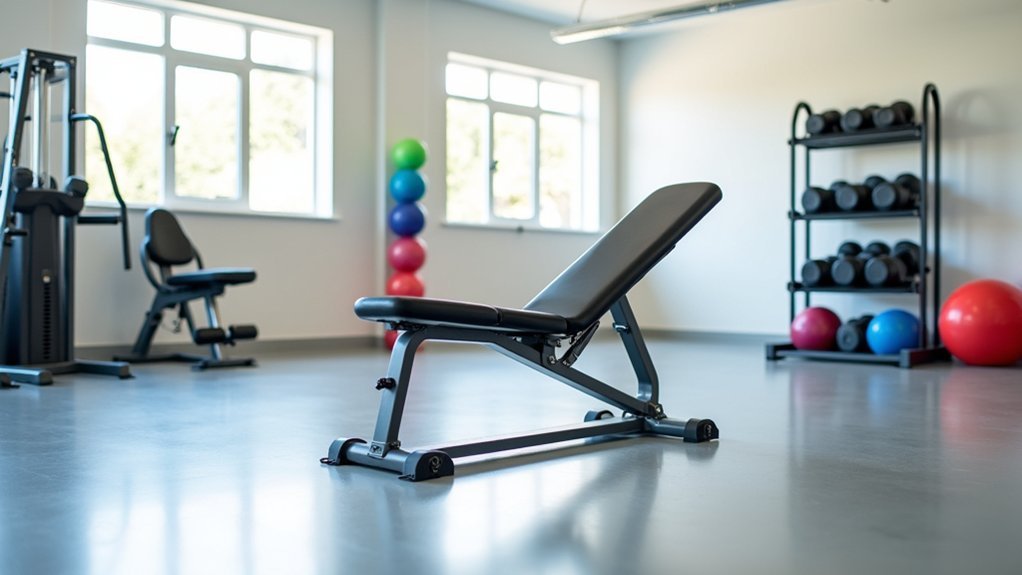
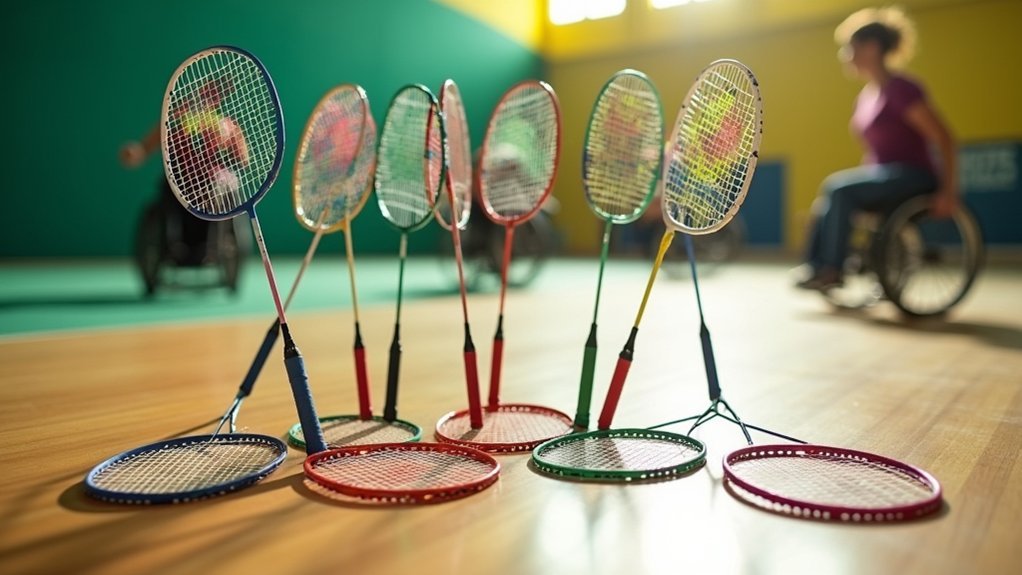
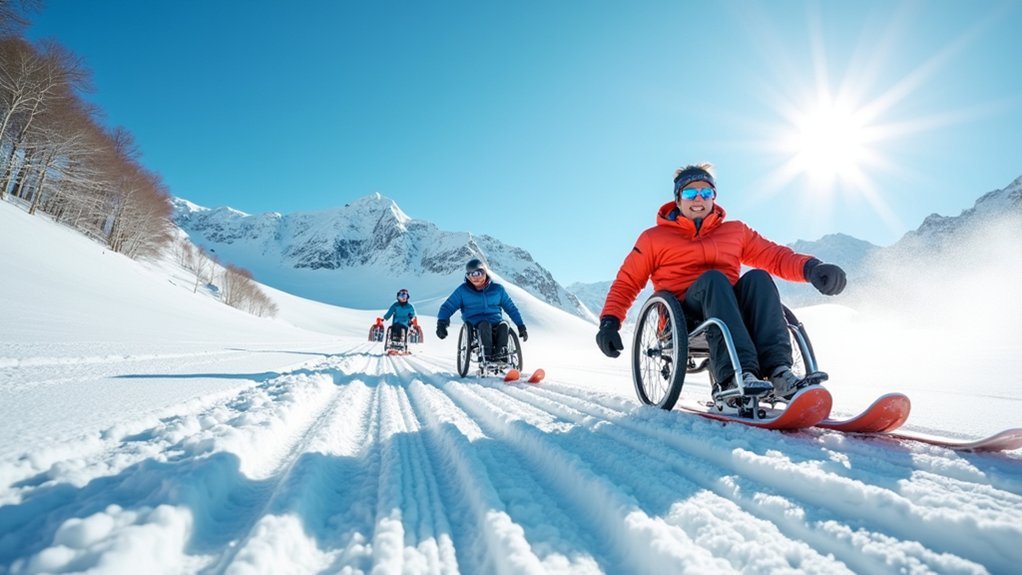
Leave a Reply